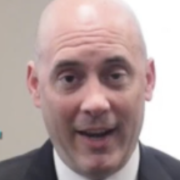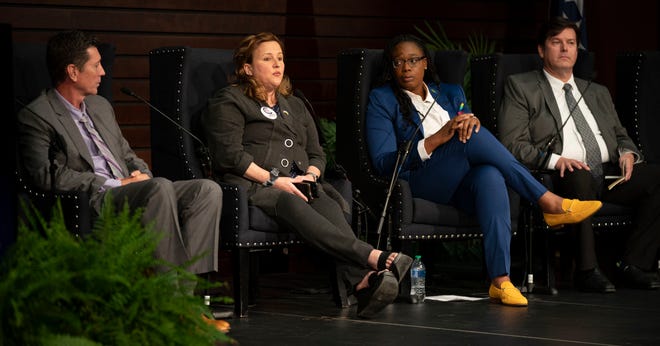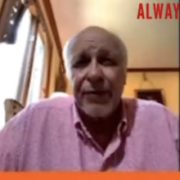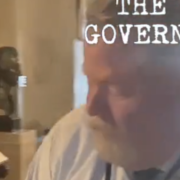Below is an open letter from Hayley Little, a Hamilton County 7th Grade math teacher who has decided to stop teaching after 5 years, that she sent to the superintendent and all the school board members. We have posted it with her permission.

To Whom It May Concern,
After five years of teaching in Hamilton County, I have decided not to return to the classroom
next year. Teaching was a lifelong dream of mine, so I am not exaggerating when I say that this
decision has left me completely heartbroken. It is no secret that teachers across the country are
quitting in droves. We are concerned and completely overwhelmed by how the public education
system seems to be deteriorating at a rapid pace. We feel helpless, at the mercy of
policymakers who have no idea what is actually happening in our classrooms. What frustrates
me the most is that many of our concerns have pretty simple solutions. I ask that you please
read through this letter and take my worries and suggestions to heart. Our education system is
broken and you have a responsibility to try and make it better.
I have tried to keep my explanations as general as possible, but note that I have only taught 7th
grade math for the entirety of my career. So, everything that I say is going to inevitably be
through that lens.
Accountability for Behavior
One of my top concerns is a lack of accountability when it comes to student behavior. I know
that there are always going to be behavior problems when you are working with kids. However,
as adults, it is our responsibility to respond with appropriate disciplinary action. Over the past
two years I have noticed an increase in behavior problems that I believe is directly correlated to
a decrease in disciplinary follow through.
Here are several examples to illustrate my point:
1. I had a student steal a piece of my property. It was caught on video tape, yet our Dean of
Students said it was “questionable” and since the student denied it, he claimed there was nothing he could do.
2. I also had a student take the name plate off of the wall outside my door and break it. This, too, was caught on camera, but the student was not disciplined.
3. The same student from the previous incident brought an airsoft gun to school. It looked
like a pistol and, since I am not a gun expert, I would have assumed it was a real gun
had he pulled it out in class. Luckily, because another student reported it, our
administration was able to apprehend the gun before anything happened. Since an
airsoft gun is a weapon that can cause real physical harm, I assumed this offense would
be 365 days of suspension. This was not the case. From my understanding, employees
at the central office level told my school’s administration that the maximum suspension
was 10 days because it was not an actual weapon and could not actually harm
someone. Anyone who has experience with airsoft guns will tell you that is just not true.
That student returned to my classroom and I would be lying if I said I did not get nervous
every time they reached into their backpack.
4. Another student of mine assaulted a teacher and vandalized that teacher’s property. This
was after they had already sexually harassed their classmates, threatened to stab
another teacher, fought multiple peers, etc. Again, I felt like this behavior warranted a 365 day suspension. Instead, this student was sent to spend some time at Washington
Alternative School and we created yet another behavior plan. Recently, however, I found
out that their mom had quickly removed them from alternative school because she felt
that it was too strict for her child. She kept her student at home for the duration of their
suspension. That student returned to school and had to be escorted from class to class
because they were a threat to others. After being back at school for only two days, the
student was already threatening other students and was caught trying to skip class
multiple times. So much of my time and energy was taken away from my other students
because I have had to manage this child.
These are just some of the behavior incidents that I have personally experienced. There are
countless more just like them and I know plenty of other teachers who have experienced far
worse. It is important to note that when major discipline problems like these are not handled
appropriately, consequences for smaller infractions like cell phone usage in class, dress code
issues, vandalism, etc. become nearly nonexistent. My school has discipline policies regarding
all of those things. Yet, when teachers try to enforce the rules, higher-ups refuse to follow
through. There have been multiple times this year where administration has made sweeping
threats such as “if you vandalize the school we will press charges”, “If you disrespect a teacher
during the last two weeks of school, we will suspend you”, or “if you are out of dress code, you
will be sent to ISS.” Very rarely are these threats actually enforced. More often than not, a
teacher will send a student to the office for breaking one of these rules and then the student will
come right back to class with only a simple warning as their punishment. Our students are not
dumb. When they realize that their teachers have no authority over them, they feel entitled to do
anything.
I have also sat in many meetings where I was asked to tell “my side of the story” in front of
misbehaving students and their parents. To put me on the same level as a child and suggest
that there is a “my side of the story” that differs from the truth is beyond patronizing. Teachers’
disciplinary authority has been consistently diminished over the past few years and, as a result,
student behavior problems have drastically increased. Every teacher I know is beyond frustrated
at the lack of clear consequences for seemingly obvious disciplinary actions. I am sick of coming
home every day with some sort of story that shocks my friends and family. I am sick of simply
shaking my head and rolling my eyes when the outrageous is deemed acceptable by our
leaders. Until you are spending day in and day out in a classroom, you have no idea the danger
and chaos that comes from having no consistent behavior policies.
The solution to this problem is simple. Follow through with consequences. Expel students for
violent crimes that put their classmates’ and teachers’ lives in danger. Allow schools to handle
their discipline problems as they see fit. When school administrations’ hands are tied because
central office staff members reprimand them for (or even forbid them from) suspensions,
expulsions, etc. our schools’ learning environments are no longer safe or stable. Believe
teachers and respect their authority to discipline appropriately. When teachers or schools are
not disciplining appropriately, handle it on a case by case basis. I am someone who always
advocates for students and is often quick to forgive, but I know that there must still be clear consequences for poor (and even dangerous) behavior. How is it fair for teachers and children
to sit in classrooms with students who are repeatedly violent and disrespectful? What are we
teaching all of the students who watch their classmates act wildly inappropriately and then
return to class with no consequence at all? Why do we have rules and policies if nobody lets us
follow them?
Accountability for School Work
I know that there are a lot of different educational philosophies when it comes to things like
grades, late work, test corrections, etc. However, I also know that nearly every teacher out there
believes that students should be held accountable to some sort of standard. During COVID, the
district released some policies regarding late work and overall student grades. These policies
have stuck around long past the early days of COVID and essentially require teachers to pass
students regardless of their actual content knowledge. These policies completely undermine our
efforts to instill a sense of accountability in our students. For example, I am not allowed to give grades lower than 59% even if a student did not turn in the assignment. I have to raise every student’s quarterly averages to at least 65%, even if they did not complete any work. I have to allow all students to correct all of their assignments and turn them in whenever they want. This year we were told that we cannot retain students, even those students who have 11% averages in classes or have been absent 75% of the school year. While I do believe that some of these policies make sense in certain extreme scenarios, those situations are few and far between.
When every single student is promoted to the next grade, regardless of their abilities, we are
setting them up for future failure. Even if it does not make a difference for the actual student
being retained, it certainly makes a difference for the hundreds of students watching. How are
we supposed to hold students accountable to actually learn the material? Many students are not
intrinsically motivated. They need to know that there will be consequences for poor academic
performance. If it were not for the threat of having to repeat a grade, a large portion of our
student body would no longer feel the need to attend school or learn. I have spent all year telling
my students and their guardians that the district policy requires them to pass both math and
English in order to advance to the next grade. For students who fail and do not attend summer
school, this new zero-retention policy has made me a liar. We want students to perform
exceptionally well on rigorous standardized tests, yet we do not require them to meet simple
deadlines or grade requirements? It does not make any sense.
Diminished Respect for Teachers
Coming into this job, I assumed that I would get to create my own engaging, standards-based
lessons because lesson planning is one of the primary responsibilities of a teacher. I was excited to bring my passion and love of learning into my classroom. My first few years of teaching, I was trusted to do just that; I had the opportunity to create a lot of my own lessons. There was still a district wide curriculum, but I had the freedom to modify the material and supplement it with outside resources as I saw fit. My fellow teachers and I had so much fun finding new ways to engage our students and I loved exercising my own creativity when building lessons. My school administration gave us the space to play to our strengths and do what was best for our students.
However, over the past couple of years it has become increasingly clear that this school district
does not trust their teachers to 1) understand state standards, 2) find rigorous materials, or 3)
discern what our own students need in order to succeed. Our freedom has been completely
stripped away and our curriculum has become more and more restrictive. It is to the point where
it feels like we are supposed to be robotically following a script. We are handed curriculum
guides and told that we need to follow them to a T. All of our lesson materials must be
county-approved. All assessments must come from the same source. Any type of creativity on
the teachers’ end is strongly discouraged. Every teacher has different gifts and passions, but
there is no room for individuality under current district guidelines. It is no secret that the kids
hate it as well. Many of these county-approved lessons are boring, too advanced, and simply
not relevant to our students’ interests and lived experiences. In their words, not mine, it feels like
we are “sucking the joy out of learning.”
To further illustrate my point, let me share these personal anecdotes:
This fall and winter, I participated in two different full day planning sessions with my content
teaching partner. While this sounds like a wonderful idea in theory, we were essentially babysat
by the district math lead. These meetings were intensely stressful and counterproductive for a
number of reasons.
1. We were forced to go through Benchmark data that my partner and I had already thoroughly examined prior to the meeting. Even though I told the district math lead that we had already made a remediation plan based on the data, she made us walk through the data again with her. We spent roughly 1.5 hours of our “planning day” doing something that we had already done.
2. During that same meeting, we were explicitly told that we were not allowed to use anything other than grade-level material. Thirty minutes later, the district lead had us read an article that was all about utilizing resources from previous grade-levels in order to better differentiate grade-level content for our struggling learners. I pointed out the blatant hypocrisy there and the district lead refused to acknowledge how inconsistent their messaging was. It is incredibly frustrating to be told that I need to be doing something, only to turn around a little while later and say that I need to be doing the complete opposite. Unfortunately that is pretty par for the course when it comes to
district-led PD.
3. At one point, my teaching partner said that they were trying not to work outside of contract hours unless they were being paid. Our district lead laughed and said “Well you’re a teacher. You have to.” That mindset and attitude is demeaning and troubling because it implies that we do not deserve to be compensated for our work. I will speak more on that later.
4. At another meeting, we tried to plan a week’s worth of lessons. The subject of the lessons was one that I was excited about; I had tons of ideas and materials from previous years of teaching the same topic. Let it be known that I was the only person in this meeting who had ever taught this standard before. Every idea that I suggested was completely ignored. When I brought up solution strategies that my previous students used, I was told “No, I really think students will solve it this other way.” Everything I contributed to the conversation was dismissed if it did not match up exactly with the
textbook. My four years of experience teaching this exact same lesson (and doing it successfully, might I add) were not valued or respected.
5. When I brought up the fact that teachers should be trusted to know their students’ needs and plan accordingly, the district lead told me that they place their trust in “the experts” who wrote our curriculum. I think it is foolish to believe that there is one single curriculum out there that will magically meet all of our teachers’ and students’ needs. Students across the country manage to learn the exact same concepts from tons of different resources; we as educators should be trusted to find suitable resources. The district lead continued to argue with me until eventually they admitted that we have to use this curriculum because the school district paid a lot of money for it. Money was the priority.
If you think I am being too harsh or that I am disproportionately outraged with the limitations of
our curriculum, know that many teachers feel the exact same way that I do. They are sick of
being put into boxes, they are sick of being treated like they are incompetent, and they are sick
of people acting like every student and teacher is the same. We are trained professionals. We
deserve to have the freedom to teach the way that our students learn best, with materials that
we feel passionately about. We deserve the trust to plan lessons that are rigorous, engaging,
and standards-based without someone micro-managing our every decision.
Now you might be thinking, What if teachers do not find rigorous enough materials? or What if
teachers are not using their planning time wisely? To that I say it is our supervisors job to know
what their staff is up to and to intervene when teachers are not performing up to standard.
Notice that student performance data is taking a drastic turn for the worse? Step in and work
with the teacher to identify the problem. Notice that a teacher’s lessons are not in alignment with
state standards? Let the teacher know, help them identify quality lesson materials, and then
randomly audit their lessons from time to time to ensure they are meeting expectations. Rather
than punish all teachers for just a few teachers’ incompetency, recognize teachers who are
doing a stellar job and remove those who are not. Assume that all teachers are operating with
good intentions and that they are putting a great deal of thought into their lesson plans. When
they are not doing those things, then you can handle these situations on a person to person
basis. If teachers can diligently keep up with the strengths and weaknesses of their 100+
students, then school administration and central office staff can certainly do the same with us.
Lack of compensation
I cannot talk about why teachers are leaving without talking about compensation. It is no secret
that teachers are not fairly compensated compared to other fields. We could go into a long list of
reasons why this is the case: teaching is a female dominated field and females are typically paid
less than men, teachers are not allowed to negotiate their salaries, teaching is a service
oriented profession, etc. I feel like this is all common knowledge and yet nobody is doing
anything to fix it. We are screaming into the void, begging for help, and nobody is responding.
Let me share some specific issues that I feel could be easily improved.
First of all, I would like to note that our salary scale does not account for differences in job
expectations. Go to any school and you will see that there are different expectations for tested v.
non-tested subject areas. Look even more closely and you will see that math and ELA teachers
have an even heavier workload compared to other subjects. Whether it is intentional or not,
tested subjects are monitored more closely. We have to attend more professional development
sessions, we have more pressure from administration and the district, we have stricter pacing
and curriculum requirements, the list goes on and on.
Additionally, at my school, ELA and math teachers are the only ones to lead RTI classes. Teachers in other subject areas just have to monitor students while they complete online assignments for RTI. ELA and math teachers are expected to prepare direct instruction lessons for their RTI groups. Those teachers are not, however, given more planning time or money to compensate for the extra work.
Additionally, it is well known that teachers work well outside of their contract hours. In order to
properly accommodate all of my students’ diverse needs, grade in a timely fashion, and adjust
my lessons according to data, I have to work well outside school hours. I typically have to work
1-3 additional hours outside of my contracted time each day. Most of the teachers that I know
have to do the same. It is unavoidable. There are years where I have done the math and, when
I factor in those additional hours, my pay ends up being between $10 and $15 per hour. That is
simply not okay.
Our salary also does not reflect the emotional toll that this job takes on us. So many teachers
that I know, including myself, have had to take anxiety meds and go to therapy because of this
job. Some teachers that I know have even been hospitalized. It has reached a point where the
stress that comes with this job also comes with a financial burden as we try to care for
ourselves.
I do have some suggestions for how people can begin to fix this problem. First of all, teachers
should have the opportunity to negotiate their salary. These negotiations should not be based
solely on testing data, because that would cause a slew of problems, but rather on a teacher’s
performance as a whole. Are they an exceptional teacher leader? Do they foster great student
relationships? Are their students excited and engaged by the content? Are they putting in the
time and effort to improve their practice? Do they have records of both qualitative and
quantitative data that show student growth? Again, it is administration and the district’s
responsibility to know their teachers and to thoroughly evaluate teachers’ performance as a whole. If teachers were able to negotiate their salary, then perhaps they would feel more motivated to stay in their field.
These extra funds could come from a number of places. One suggestion is to cut back on
central office personnel. For example, you could eliminate the district content lead positions; put
together a diverse group of teachers from each subject/grade level who will work together to
create curriculum guides, professional development sessions, etc. Rather than pay one person
to do that role, give raises to the group of teacher leaders. Similarly, you could eliminate other
non-essential positions and leave those responsibilities up to each school. Because the schools
in our district are so diverse, I feel that it makes more sense for there to be school-specific
leaders (such as instructional coaches or department heads) who help their teachers navigate
school-specific situations. Not only would it cut back on spending, it would also boost teacher
morale. Oftentimes, teachers feel that central office leaders are out of touch with schools’
needs. If leadership was coming from within the schools, their guidance would feel more
relevant and personal; teachers would be more responsive to their suggestions.
Testing
I am also incredibly concerned about the amount of testing our students have to undergo and
the mental toll that it is taking on them. At the middle school level, our students take three online
diagnostic tests throughout the course of the year in both ELA and Math. Each one of these
tests takes roughly three days to complete. Our students also take three benchmarks, one at
the end of each quarter, as well as state testing at the end of the year. These benchmarks and
state tests take roughly 1-2 weeks for our students to work through all core subject areas’
assessments. I did the calculations and this year my students lost between 15-20 days worth of
instructional time due to testing. That is almost a whole month of the school year that is
replaced by standardized testing. On top of that, we are also expected to administer at least four
regular classroom assessments each quarter.
Our students are anxious, frustrated, and completely overwhelmed by the constant pressure to
perform. In the past month alone I have had several students admitted to residential mental
health facilities because they were so stressed out. Standardized testing is killing our students’
natural curiosity and is proving to be seriously detrimental to our kids’ mental health. Test scores
are also a huge source of anxiety for teachers because one of the only times that they receive
recognition is when their students perform well on assessments. In my experience, nothing
excites administration or central office more than good test scores. It is like everyone has
forgotten the fact that we are supposed to be creating life-long learners who are capable of
more than just bubbling in answers on a scantron. Our students and teachers have so many
other wonderful accomplishments that go unnoticed because standardized testing is prioritized
above all else.
To anyone who says that we need standardized testing data in order to measure student
learning, I would like to remind them of a few things. First of all, competent teachers do not need
standardized testing data in order to tell you their students’ strengths and weaknesses because
they are the ones working with their students day in and day out. Rarely have I looked at testing
data and been surprised by what I saw. Second of all, student performance can be affected by
so many outside factors. If students do not get enough sleep the night before, if they are
preoccupied with problems at home, or if they do not see value in standardized testing, their
scores will be lower than they should be. Similarly, a student could select random answers for
the entire test, get lucky, and then end up with a higher score than they should. I would argue
that the day to day data that you can collect by visiting classrooms and talking to students is far
more valuable than any standardized test score.
Not only would decreased testing add back valuable instructional time, it would also improve our
teachers’ and students’ overall wellbeing. Without the constant pressure to perform, students
and teachers would have the headspace and motivation to engage in more enriching learning
experiences. In order to cut back on unnecessary testing, I propose the following adjustments
for middle schools in Hamilton County:
1. iReady diagnostic in August
2. Benchmark in December or March (either at the end of Q2 or Q3)
3. TNReady testing at the end of the year
4. iReady diagnostic at the end of the year
I appreciate you reading through my concerns and I urge you to start making some changes
before things get worse. Every teacher that I know has already quit or is seriously considering quitting.
When you walk into schools, the tension is palpable and everyone seems to be hurting
in some way. Teachers are desperate for change because we know that our students will be the
ones to suffer the most when there are staffing shortages. Students deserve to have
experienced, passionate teachers in their classrooms. Unfortunately, many of those teachers
are leaving the field. Last week I asked my students to reflect on the past couple of years. They
said “We wish that learning was fun like it used to be,” “We wish that there were consequences
for when students do not follow the rules,” and “We wish that teachers were happy to be here.”
Our students are not blind to the issues that plague our system. The good news is that these
problems have solutions. Teachers know that. We just do not have the freedom to fix them on
our own.
Leaving teaching has not been an easy decision for me. It has been utterly devastating to
realize that my greatest passion in life is also the thing that causes me tremendous stress. I feel
a great deal of shame when I think about leaving my students and coworkers behind. However, I
do know that I deserve to work in a field where I am fairly compensated and am trusted to be a
professional. Although I am leaving the classroom, I will never stop advocating for our teachers
and our students. I encourage you to start having these deep conversations with teachers
across the district so that you can get other perspectives as well. Teachers are smart and capable and they deserve to be heard.
Please let me know if you have any questions or if you would like to have a more thorough conversation in person.
Thanks,
Hayley Little
NEW LEAKED AUDIO: TN House Republicans infighting over #TennesseeThree votes.



















































